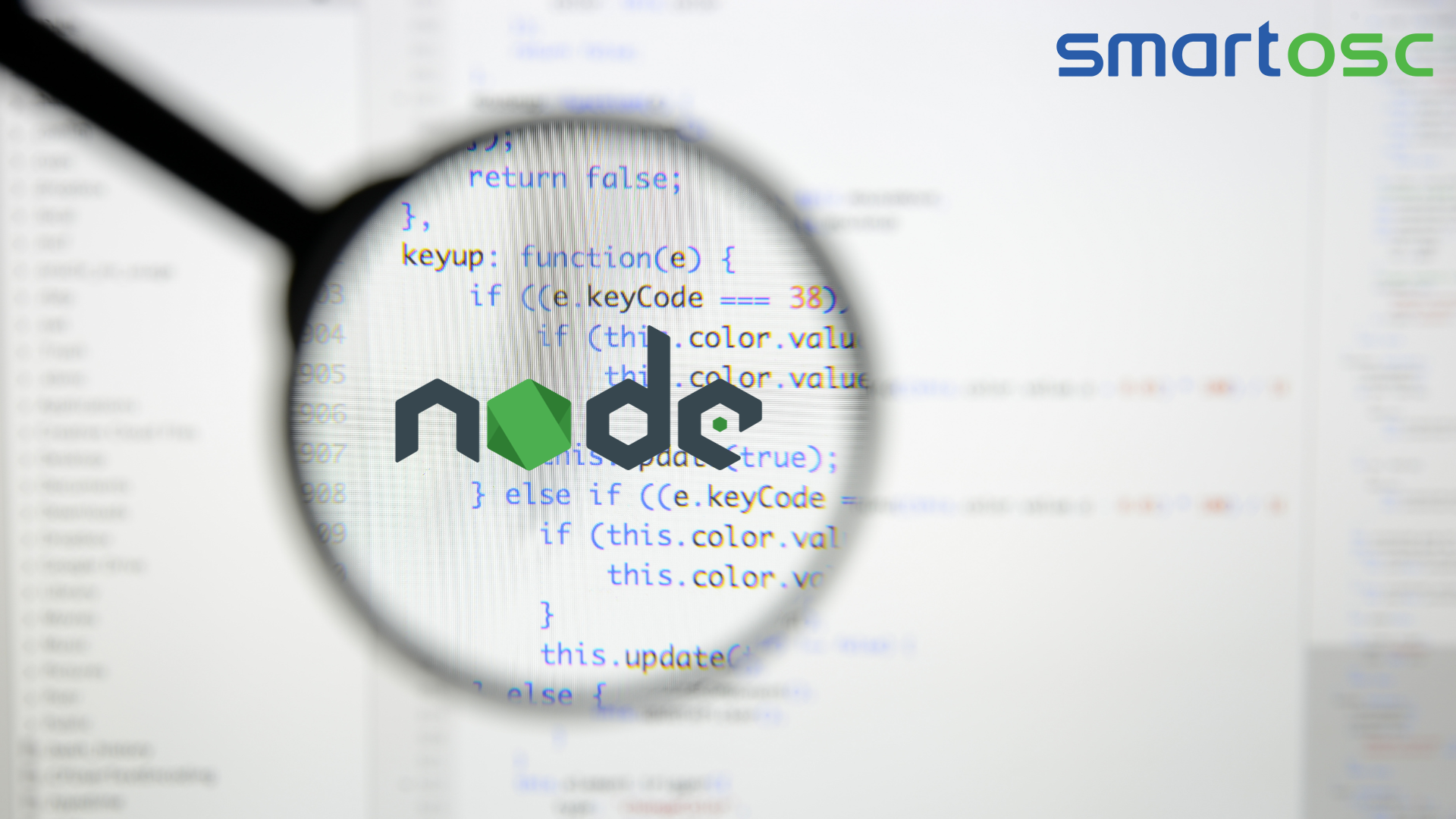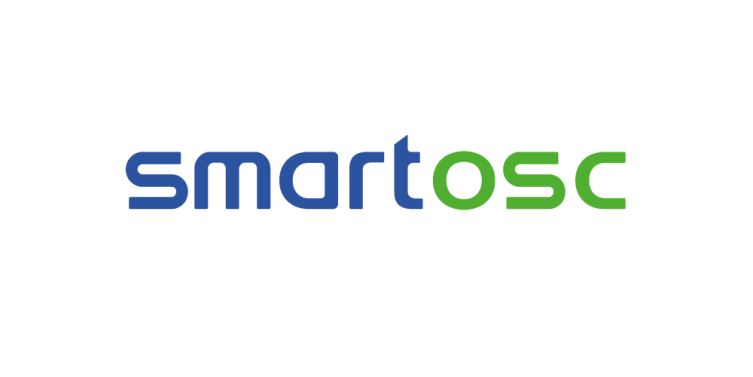Node.js is a programming language that is becoming increasingly popular due to the applications and career opportunities it brings. So, what do you need to learn Node.js? What should beginners pay attention to when learning Node.js? Let’s explore these questions with SmartOSC Careers in the article below.
Why you should learn Node.js
- Speed and performance: Node.js is renowned for its exceptional speed and performance, stemming from its foundation on an event-driven platform. This unique architecture empowers Node.js to efficiently and swiftly process HTTP requests, rendering it an exceptional choice for high-traffic web applications. As a result, Node.js excels in delivering optimal performance and responsiveness, ensuring a smooth user experience, even under heavy load.
- Scalability: Node.js embodies scalability through its utilization of a microservices architecture. This architectural approach enables the construction of applications from small, independent components. As a result, Node.js applications are inherently designed for seamless scalability, allowing them to effortlessly expand and adapt to increasing demands, making it an ideal choice for dynamic and evolving web applications.
- Interoperability: Node.js leverages JavaScript, a widely acclaimed programming language for both client-side and server-side development. This unique feature enables developers already familiar with JavaScript to readily adapt to Node.js, significantly easing the learning curve and fostering an environment of interoperability and synergy between client-side and server-side development efforts.
- Community: Node.js boasts a vibrant and thriving community of users and developers. This robust community engenders a wealth of resources, from documentation and tutorials to forums and support networks, facilitating an enriching environment for learning and problem-solving. The extensive support and collaboration within the Node.js community ensure that developers have access to comprehensive assistance, fostering continuous growth and innovation within the Node.js ecosystem.

What you need to learn Node.js
Knowledge
- Basic programming knowledge: You need to have a good understanding of core programming concepts such as variables, functions, loops, conditionals, objects, and more. Understanding and using these concepts proficiently will help you to process data effectively, build modular Node.js applications, and make them easy to maintain.
- Knowledge of JavaScript frameworks: To be successful in mastering Node.js, a popular JavaScript framework, you will not only need a deep understanding of Node.js, but also an understanding of and proficiency in using frameworks such as AngularJS, ReactJS, or VueJS. These frameworks provide powerful tools and libraries for building complex web applications.
- Knowledge of HTML and CSS: To develop and build Node.js web applications, it is essential to have a good understanding of HTML and CSS. HTML helps you to create the structure and formatting of the content on a web page, while CSS allows you to style and decorate the application’s interface. Mastering both of these languages will help you to create engaging, interactive, and professional interfaces for your applications.
- Knowledge of databases: To develop web applications using Node.js, knowledge of databases is essential. You will need to understand relational database management systems (RDBMSs) such as MySQL, MongoDB, or Redis in order to choose and use the appropriate one during development.
- Skills in using development tools: These are the development tools that help you to write code, debug, and test web applications. Understanding and using development tools such as Git, npm, Visual Studio Code, or WebStorm is essential.
Necessary skills
- Problem-solving skills: Problem-solving skills constitute a crucial asset when undertaking the development of web applications within the Node.js environment. These skills encompass a broad spectrum of abilities, including but not limited to troubleshooting code errors, identifying and resolving logical errors, and addressing performance issues. A keen aptitude for problem-solving is indispensable for ensuring the seamless functioning and optimal performance of Node.js applications.
- Self-learning skills: cultivating strong self-learning skills is imperative due to its rapidly evolving nature. New documentation, tutorials, and best practices continually emerge, necessitating a proactive approach to staying abreast of the latest knowledge. Embracing self-learning and actively seeking out information from diverse and authoritative sources are pivotal for consistently enhancing and deepening one’s expertise in Node.js development.
- Teamwork skills: Collaboration and teamwork are often integral components of developing web applications, prompting the need for effective teamwork skills. Participating in open source projects or engaging with the Node.js community not only offers opportunities to contribute to impactful projects but also serves as a platform for honing teamwork and collaborative abilities. Engaging with the Node.js community can foster an environment where individuals learn to work effectively within teams and leverage collective expertise to achieve common objectives.
- Communication skills: Communication skills play a pivotal role in the realm of Node.js development, as the ability to effectively convey ideas and comprehend the perspectives of clients, colleagues, and fellow developers is paramount. Clear and articulate communication is indispensable for fostering productive collaboration and ensuring that the vision for Node.js applications aligns with the expectations and requirements of stakeholders.
- Foreign language skills: Proficiency in foreign languages can significantly enhance opportunities for connecting with the international Node.js community, accessing a wealth of resources, and broadening one’s spectrum of job prospects. Multilingual capabilities not only facilitate meaningful engagement with a diverse global audience but also showcase a commitment to embracing and understanding different cultural contexts, thereby enriching one’s professional profile within the Node.js ecosystem.

Tips for beginners
- Start with the basics: Learning Node.js requires patience and determination, so don’t try to learn too much at once. Instead of rushing, start with the basics and then gradually progress. By taking things step-by-step, you will build a solid foundation and gain a deeper understanding of Node.js.
- Do exercises and real-world projects: To learn Node.js effectively, focus on practice. Start by building simple Node.js applications and then gradually increase the complexity. You can start with simple applications such as a static website or a dynamic web application. Once you have mastered these applications, try to create more complex applications. Increase the complexity by adding more features or using new technologies.
- Join communities and forums: The Node.js community is a valuable resource for learning and exchanging ideas with other programming enthusiasts. Through communities, you can connect with other developers, learn new knowledge, and share your experiences. Join communities on social media, forums, or chat rooms to connect and exchange with like-minded people.
Each year, SmartOSC hosts a unique hiring initiative aimed at Node.js developers, catering to both recent graduates and seasoned professionals. This recruitment drive offers promising career prospects for individuals enthusiastic about Node.js programming, fostering their professional growth within a dynamic and expertly crafted setting. Through this distinct recruitment program, SmartOSC aspires to open doors for tech-savvy youth, nurturing comprehensive career development opportunities. Discover opportunities for Node.js roles on SmartOSC Careers.






